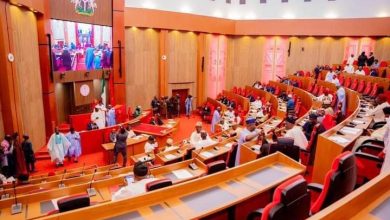Nigeria: Landlord’s And Tenant’s Frequently Asked Questions

Who is liable to carryout repairs on the rental property?
Landlord is only liable for the structural and external repairs of the rental property, you are responsible for the internal repairs and minor wears and tears repairs.
If you carry-out structural and external repairs on the property with the previous consent of the landlord in writing, you will be entitled to receive compensation from the landlord for the amount expended on such repairs.
Can landlord increase rent?
Some states have Rent Control Laws in place, but the provisions of such laws against arbitrary increase of property rent by landlords are usually not enforced in court.What remedies are available to me where landlord collects rent but cannot deliver up possession of the rental property to me?
One of landlord’s obligations is to ensure that the property is ready for possession by tenant on the agreed date. If the property is not ready, you can repudiate the agreement and write the landlord for a refund of rent.
If the landlord refuses to return the rent, get a lawyer to do the following:
Pursue the landlord and recover the money paid as rent file a claim for damages against the landlord for breach of agreement apply to court for specific performance, if you are still interested in the rental property file a claim for special damages that arise as a result of the landlord’s breach of agreement. You would have to prove that the landlord could have reasonably known that you would suffer damages for not making the property available.
If there is element of criminality in landlord’s action, your lawyer may petition a security agency about the alleged advance fee fraud and criminal breach of trust committed by landlord. In the North, your lawyer can institute a direct criminal complaint against the landlord without a need for fiat from the Attorney General.
Can Landlord enter my rental property at will?
Landlord can enter the property where there is an emergency or where it has been abandoned by you. Landlord can also enter the property after serving a notice of entry to you when he wants to inspect the property, carry-out repairs, or to show the property to a potential buyer.
Can I accommodate guests on the rental property?
Yes, your guests can visit the rental property. However, where the lease has a clause that limits how long guests can be accommodated on the property, landlord can force the guest(s) to leave the property.What are my basic duties as tenant?
By signing the tenancy agreement, you are agreeing to abide by all the express and implied terms of the lease, including to pay rent as and when due, pay utility bills without delay, report any damages on the property to landlord, maintain the cleanliness of the premises, etc.Can landlord or tenant change the lease agreement at will?
Tenancy/lease agreement cannot be changed except with the agreement of the other party. Rent, however, can be increased by landlord periodically.Who can evict a subtenant?
Landlord has the authority to evict a subtenant. However, where you assume the role of landlord, you may also be able to evict subtenant if you had a direct lease agreement with the subtenant or collected rent from subtenant.
What happens when my term of lease expires?
Landlord can terminate a lease at the expiration of the term of lease.
That means your landlord is under no obligation to renew your lease or allow you to stay in the property. Where there was an option to renew clause in the lease agreement, your landlord should give you a sufficient notice that your lease will not be renewed. When your first term of lease comes to an end, you are expected to move out of the property and deliver up possession to landlord if there is no written agreement to renew the lease by another term.You can renegotiate and sign a new lease with landlord. Where landlord continues to accept rent from you after the end of the first term, you become a periodic tenant of the landlord.
Landlord has not given me adequate eviction notice, is this valid?If landlord has not given you adequate eviction notice to terminate a periodic tenancy, the notice still has effect. Sometimes, the court may construe the expiration date to start counting from the date you were served with the notice.Note that the timeframe for valid eviction notices may be determined by the agreement you had with your landlord.
If no agreement was made, the timeframe will be determined by the operation of law based on the period of your tenancy and your mode of payment of rent as follows:
If your tenancy is on a weekly basis, you are entitled to 7 days’ Notice to Quit Tenancy at will – 7 days’ notice Monthly tenancy – 1-month notice Quarterly tenancy – 3 months’ notice Half-yearly tenancy – 3 months’ notice Yearly tenancy – 6 months’ notice to quit.Landlord has served me with valid quit and eviction notices, what should I do?
You can act according to the eviction notices and pack-out of the premises. You can also not do anything and continue to live on the premises. If you choose the latter option, your landlord will have to file a court action against you for recovery of premises.What defences do I have if landlord files an eviction proceeding against me?
Where you are faced with a court proceeding filed against you by landlord for recovery of possession of rental property, you may have the defence that landlord has not followed due procedure for lawful eviction; or that you withheld the rent because landlord failed to make necessary structural repairs on the property after repeated demands; or that you have not been compensated for your improvements on the demise premises; or that your tenancy is still subsisting. You may be entitled to damages for trespass if you suffered unlawful ejection by landlord.
Can I increase rent?Yes, but you should negotiate with tenant or give tenant adequate notice before effecting a hike in rent.Can tenant refuse me entry into the property?If you have provided sufficient notice to tenant, tenant cannot block your entry, but may suggest a different date and time for entry.Can I forcibly eject tenant from my property?
No, you cannot. You must provide tenant with written eviction notices. Where tenant remain on the property after expiration of the eviction notices, you must commence a formal eviction proceeding to eject him by Order of Court. The court frowns at self-help or extra-judicial action taken by landlord to evict a tenant from property. Where you resort to self-help or use the police against tenant, tenant can, depending on the circumstance, pursue a claim against you for damages, wrongful eviction and trespass.What should I do if tenant does not vacate the rental property after being served with eviction notices?
On the expiration of the time stated on the Notice of Owner’s Intention to apply to Court to recover possession of the property (also known as “7 days’ Notice”), if tenant neglects or refuses to give up possession, you should get a lawyer to apply to the appropriate court to get back possession of the property. Only the court bailiff has the power to physically remove the tenant and the tenant’s belongings. The law does not allow you to remove the tenant yourself.
READ ALSO: How to avoid getting scammed out of your home or becoming a victim of land fraud
On what grounds can I terminate the tenancy agreement and evict tenant from the property?
You can terminate the tenancy agreement and commence eviction proceeding against tenant subject to the lease agreement where he is in arrears of rent; is constituting a nuisance; conducting illegal activities in the lease property; has violated a term or condition in the lease agreement; has seriously damaged the rental property; has sublet the demised premises to a 3rd party contrary to the agreement; is interfering with your rights as the landlord or the rights of other tenants; or you or your family member wants to personally use the premises; or you want to carryout structural repairs on the premises.
NEXT STEPS?
If you are in a dispute over a rental property, or concerned about your legal rights whether as the landlord or tenant, or want to evict tenants from your property, or currently facing eviction from landlord; seek proper legal advice and help from a legal practitioner.The content of this article is intended to provide a general guide to the subject matter. Specialist advice should be sought about your specific circumstances.
Source: Mondaq




